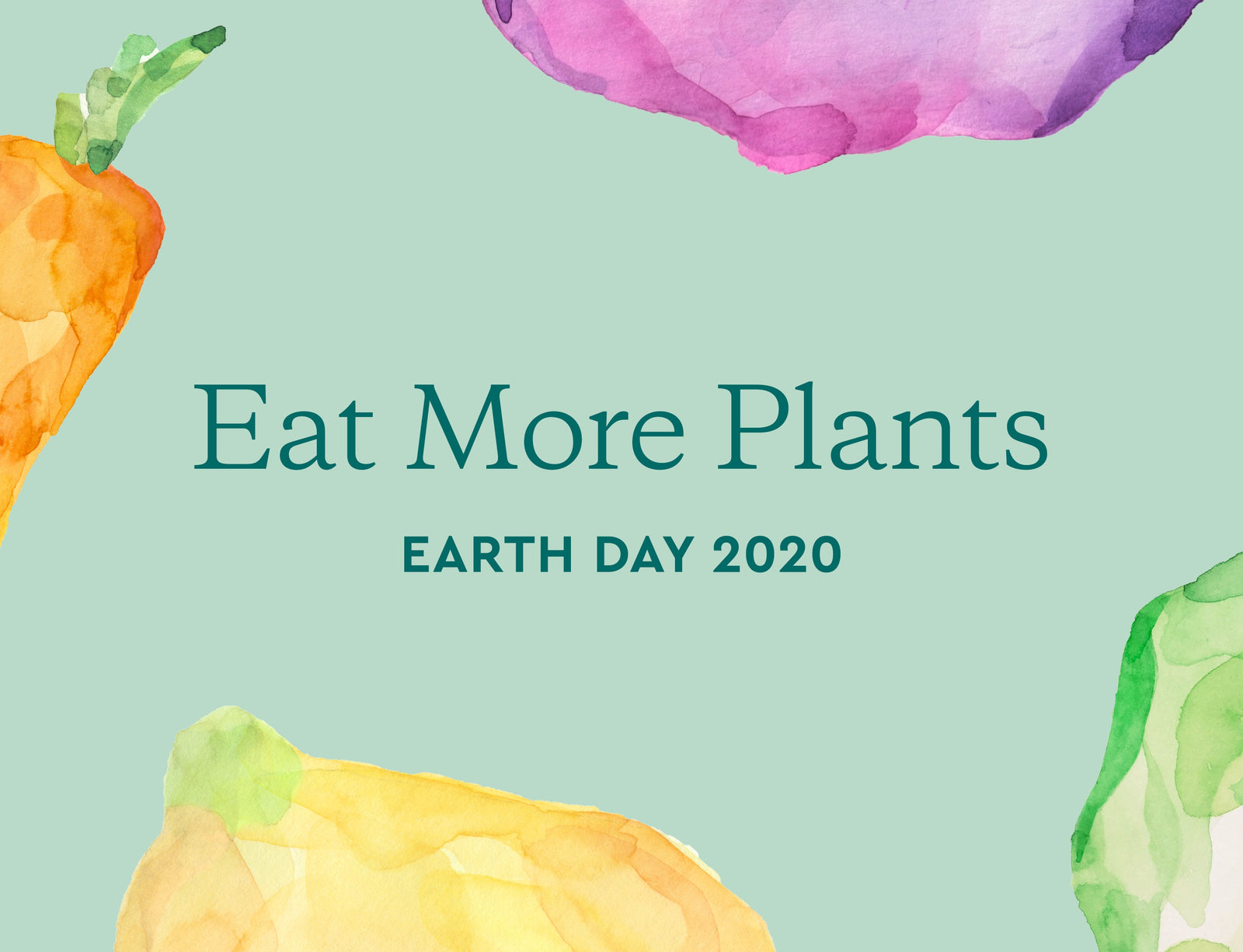Why Eating More Plants Is Good for the Environment


Today is Earth Day! And now — more than ever — it’s clear that humans have a powerful impact on the planet. While most of us are spending our time indoors, the planet is changing in remarkable ways. There’s been uplifting news of smog clearing out over once-crowded highways and greenhouse gas emissions falling as factories slow production; wildlife has grown more active and is repopulating areas it had been pushed out of for years.
Of course, this particular positive environmental change comes at a huge cost, and we're all hoping for a quick return to normalcy. But we at Mosaic are optimistic that when we get back on with our lives, we can all carry with us a newfound respect for nature — and an awareness of the way we affect it.
While the sheer number of environmental issues we’re faced with can sometimes feel overwhelming, there’s an easy, simple way to reduce our carbon footprint that we’re big proponents of at Mosaic: eating more plants. Plant-based foods generally have a much smaller environmental footprint than do meats — and eating more plants can do quite a bit of good for our world. For many of us at Mosaic, that doesn't mean eliminating meat entirely. It just means being more conscious about what we consume and making an effort to integrate more plants into our everyday diets.
Curious about the science behind plant-forward eating and climate change? Here's some more info:
How plant-forward foods reduce environmental impact:
Did you know that the agriculture industry is responsible for 25 percent of the world’s greenhouse gas emissions — and that animal farming accounts for three-quarters of those effects? It creates twice as much greenhouse gas as emissions from cars, and the same amount as emissions caused by heating and electricity.
How, exactly? For one, livestock naturally produce methane as part of their normal digestive processes. But methane is harmful because it heats the earth 20 times faster than carbon dioxide, which means it’s a big contributor to global warming. When you consider that 32 million cows alone are farmed each year, you’re talking massive amounts of methane generated from their collective waste — 300 million tons of it a year, in fact. Managing that alone accounts for 37 percent of all agricultural greenhouse gas emissions. Eating a more plant-forward diet can help offset that: tofu produces just under 7 pounds of greenhouse gases for every 100g of protein, while beef produces 231 pounds for every 100g of it — that’s more than 30 times the impact.
The atmosphere isn’t the only thing you’re helping by eating more plants. Take water, for instance: producing a single pound of animal protein requires 100 times more water than producing a pound of grain protein. And producing one gallon of milk requires 1,000 gallons of water. On the whole, animal agriculture uses up over half of the world’s fresh water supply.
Eating plant-forward food benefits wildlife and animal habitats, too. Farmland currently accounts for 60 percent of the earth’s usable land. Millions of acres are deforested each year to meet the growing demand for cattle, pigs, chickens, and other poultry, and to grow the food that feeds them. This creates two problems: for one, naturally occurring plant life is destroyed, and animal species are left displaced — loss of wild areas to agriculture is the biggest contributor to wildlife extinction.
It also equates to a large amount of waste. Most farms are not used to grow fruits, vegetables, or grains for human consumption, but instead to grow feed for the livestock we eventually eat. That’s even more water and resources being used up, and more greenhouse gasses produced. Research shows that farmland use (83 percent of which is dedicated to livestock farms) could be reduced by over 75 percent, and we would still be able to feed the planet by growing plants and grains instead.
That’s why we advocate conscious consumption. We've found that for many people, it's helpful to know that you don't need to eliminate meat entirely: you can still make a big impact just by choosing to eat plant-forward more often. It's a win-win for you and the planet, and one of the most significant ways you can positively impact the environment — right from the comfort of your kitchen.
Interested in finding new ways to integrate more veggies into your diet? Here's how:
Easy Ways to Eat More Plants:
- Meatless Mondays: Designating one night a week as a no-meat day is a great way to give yourself a slow introduction to a plant-rich diet, and cutting back in a small way like this can be very impactful! Tofu, jackfruit, veggie burgers, and mushrooms are great substitutes if you’re looking for a protein alternative.
- Keep a supply of frozen veggies stocked: You won’t have to remind yourself to buy them constantly at the store, and you’ll have them on hand without rushing to cook before an expiration date. See our guides on how to freeze any veggie you can think of and on how long frozen foods last for an idea of what’s best to have on hand.
- Swap out an animal-based ingredient for a plant-based one: That could mean opting for oat milk in your morning coffee instead of creamer or using soy milk in your cereal rather than dairy. Or, try swapping butter for coconut, vegetable, or olive oil in your cooking.
We know that it can sometimes feel like beating climate change is an impossible challenge. But every little step makes a big difference. Here at Mosaic, we're proud to be cooking using lots of veggies — and we hope that this Earth Day, you will be too!

Comments